Avoiding a regrettable car purchase: insights from the CEO of a Kazakhstan startup specializing in car selection
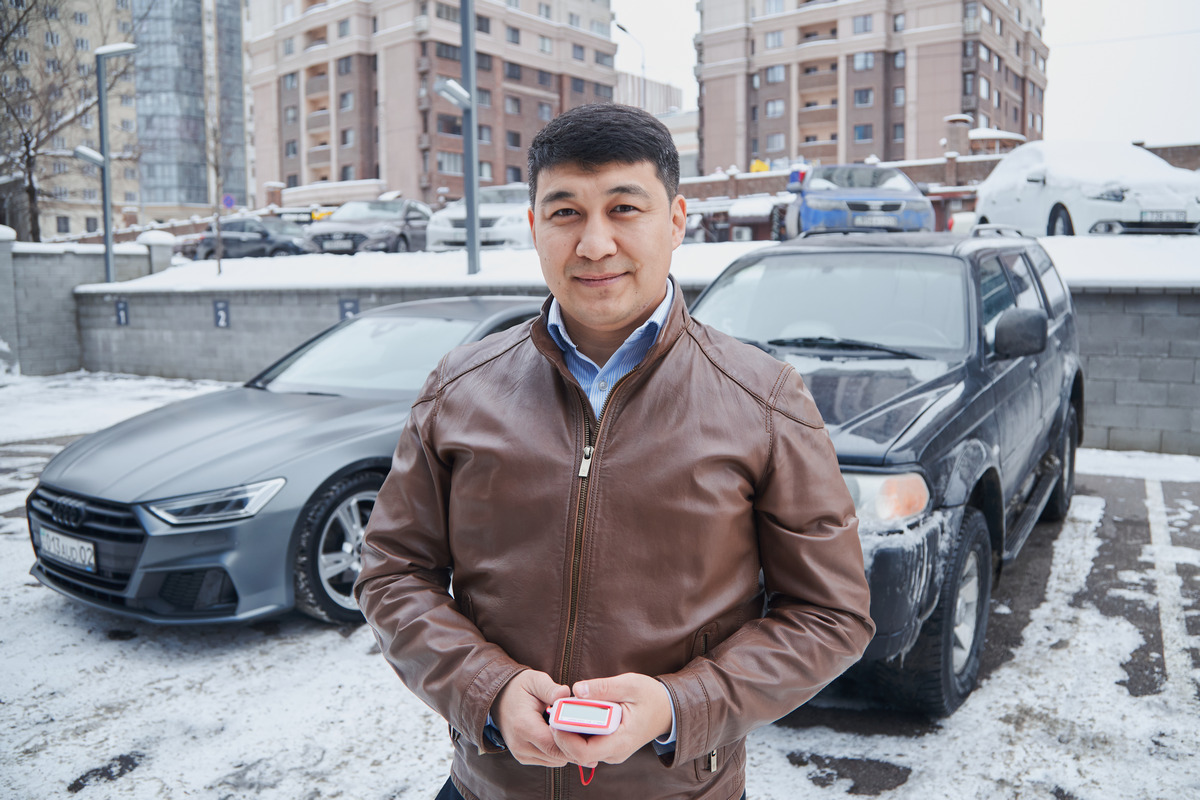
Purchasing a pre-owned car in Kazakhstan can be both enjoyable and challenging. This is due to the fact that numerous vehicles come with legal and technical issues that sellers often omit from their advertisements. CheckAuto, a startup, has created a tool that allows individuals to uncover the genuine history of a car before making a purchase. They developed a mobile application utilized by those assisting in car selection and Kazakhstani buyers seeking an expert to locate and assess a vehicle.
As part of the collaborative initiative with Astana Hub, "100 Startup Projects of Kazakhstan", Ilyas Kurman, CEO, and co-founder, discussed endeavors to bring together car selection advisors, the primary challenges within the Kazakhstan auto market, and CheckAuto's commitment to acquiring comprehensive information about every car on the country's roads.
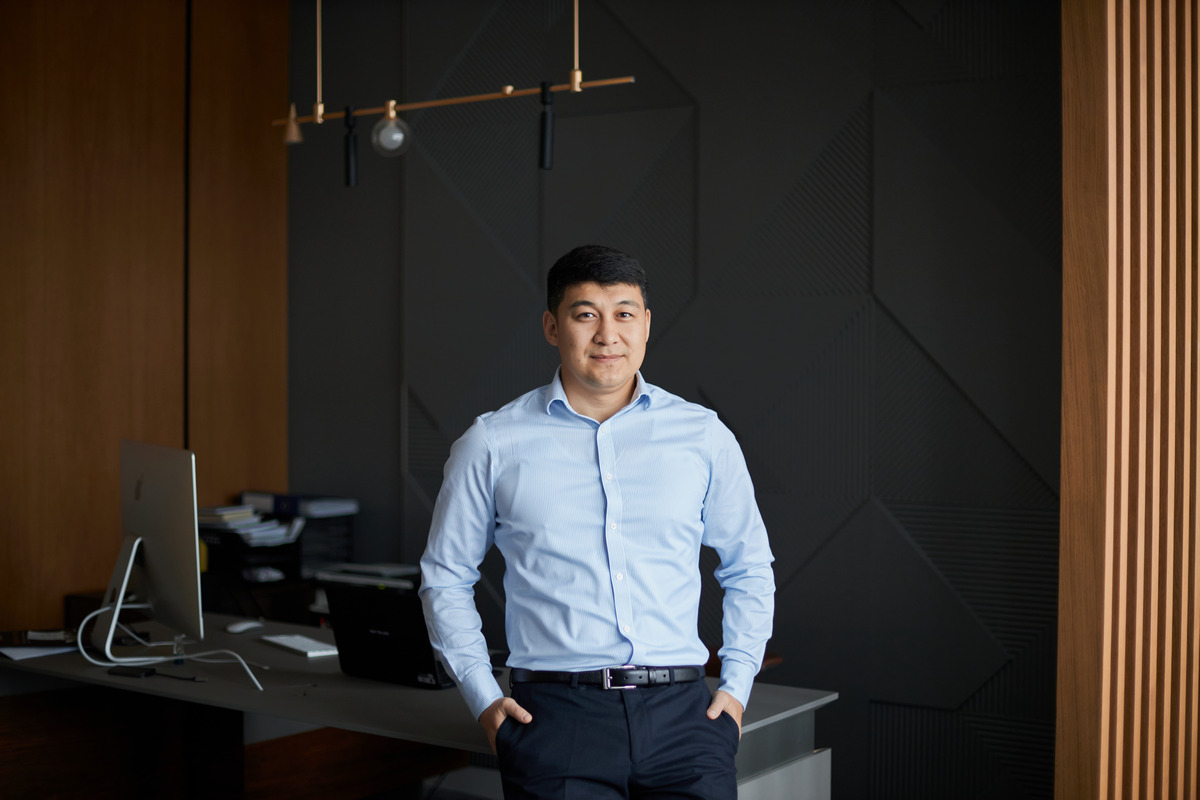
«Our aim was to enhance the current business instead of testing hypotheses»
— Before venturing into a startup, I was involved in various business sectors, ranging from machinery building to the cryptocurrency market. For instance, in Kazakhstan, we assembled cars by importing chassis and utilizing them to construct trucks, petrol tankers, lift trucks, and tow trucks.
Traditional business is fine, but to transform into a billion-dollar company, it's crucial to embark on something novel and compelling. Hence, myself and long-time associates, Dinislam Oraz, a highly skilled data scientist, Elnyr Idekeev, a product manager, Sapar Zhymabekov, a developer, and I, as the project's CEO, decided to take a risk. Additionally, there are other team members at CheckAuto, including UX/UI designers, sales specialists, and others who work with us remotely.
— What led to the inception of the car selection idea?
— When contemplating the startup concept, our approach differed from the usual method of creating a hypothesis and conducting prolonged testing. Instead, we aimed to enhance an existing, operational business as the foundation for our startup. The objective was to start earning from the very first day.
The car selection idea originated from our co-founder, Dinislam, and received unanimous support from all of us.
We began by assisting auto selection advisors in creating checklists for car inspections, inputting the gathered information into tables. Now, we have developed an application and a mobile version that not only includes checklists but also allows for the uploading of VIN code data from various databases, including Russian, Korean, and US manufacturers.
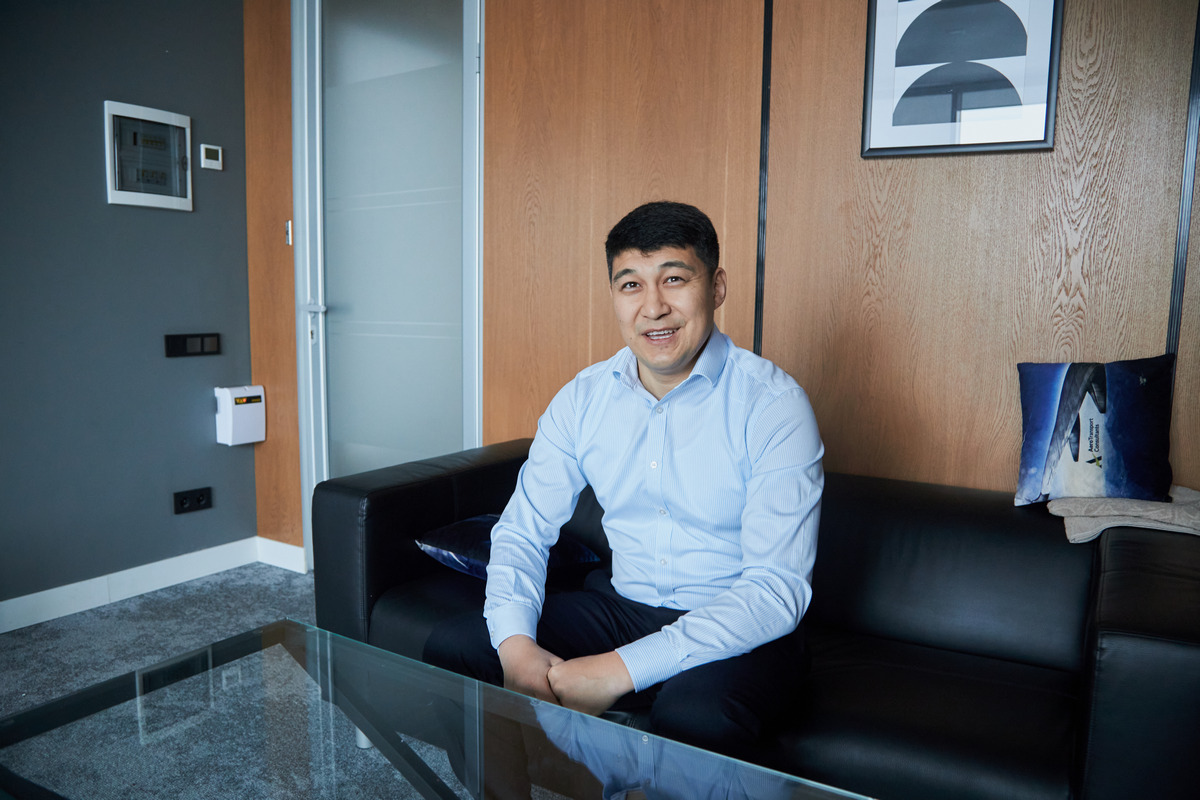
Looking for uncle Kolya
— Let's be honest. As of 2023, who constitutes the main user base for the CheckAuto application?
— At present, the application primarily caters to auto selection advisors. To establish services that will gain popularity among individuals searching for a car and seeking to verify its history, there's much groundwork and brand awareness building ahead. I believe we'll attain this, but it will happen a bit later, once we've captured a substantial portion of the market.
— How do you work now?
— Auto experts assisting in car selection in Kazakhstan can submit applications to CheckAuto. We carefully assess each specialist before adding them to our database. It is important to maintain impartiality of such experts, given that we entrust them with the responsibility of car selection. We charge a 10% fee for each application, with the remaining amount earned by the car selection advisor.
—Can integrity be attained in this process?
— We are implementing a rating system that allows experts to receive feedback from clients regarding the quality of selected cars. This, in turn, increases the likelihood of experts receiving more car selection orders based on their good reputation.
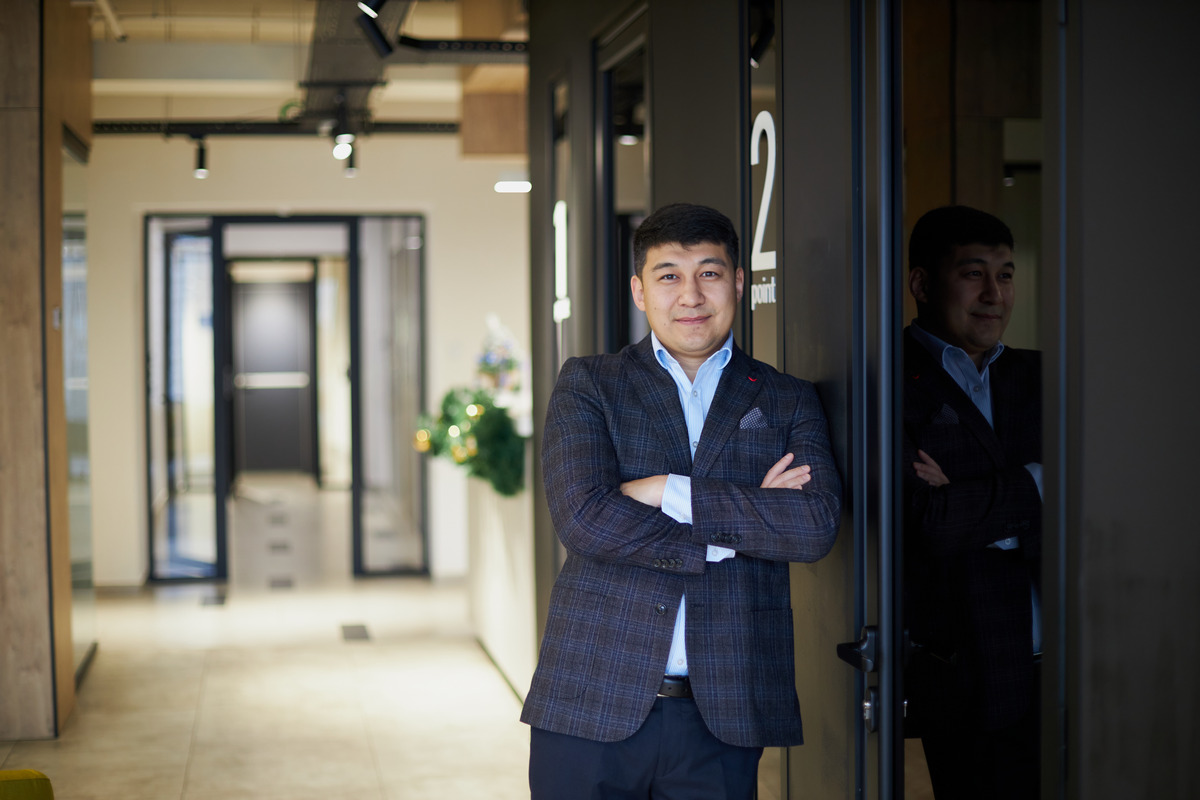
– Which experts are we referring to?
– This includes individuals often colloquially referred to as "uncle Kolya" — those who have dedicated their lives to working with cars. They possess extensive knowledge about car repairs but lack clear avenues to monetize their expertise. We are prepared to assist such specialists in terms of marketing and promotion.
Today, we are expanding our database to include car repair shops as they express interest in collaborating with CheckAuto. While auto experts can quickly assess and inspect cars, car repair shops have the capability to conduct more comprehensive diagnostics, including checking the car body, lifting the car on a car lift to examine the bottom and the running gear. Financially, this is advantageous for car repair shops as well: while a car lift may generate 3-4 tenge per hour from repairs, collaborating with us can yield over 10 thousand for a car inspection.
Additionally, this creates a cross-sale opportunity for them: if there are any issues with the car, a seller or buyer can choose to leave it at the car repair shop for maintenance.
— Is the primary function of the application to assign orders?
— Not only that, but we also provide comprehensive auto checklists outlining the essential points for inspection. All data pertaining to the inspected car, including photos and videos, is stored in the auto expert's account. This information can be accessed at any time, eliminating the need to store all video reports on your mobile phone.
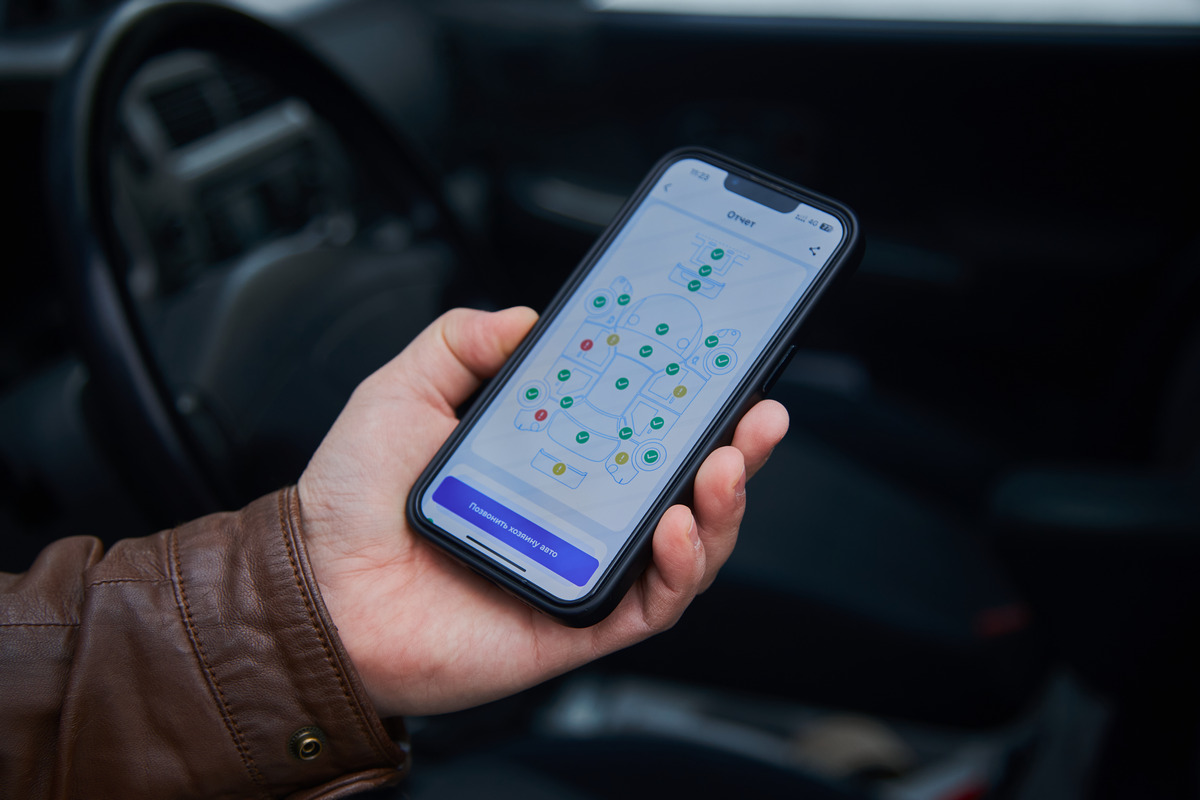
Furthermore, CheckAuto enables the retrieval of information about the car's history from other databases. Why is this necessary? If the manufacturer's data asserts that the car is equipped with seat heating and a sunroof, but in reality, these features are absent, it indicates potential issues with the car. Similarly, discrepancies such as the VIN code suggesting a beige interior while the actual interior is black raise questions about the car's history and what may have transpired.
– Can you provide the figures: the number of individuals from Kazakhstan who have already utilized your services?
In just one year, approximately 1,000 cars have been inspected using CheckAuto. Currently, we collaborate with 40 experts and 14 car repair shops. We aim to expand this number, targeting around 250 car selection advisors for seamless operations.
— Your Instagram showcases a considerable amount of information about training for car selection advisors. What prompted the decision to launch this initiative?
—Indeed, we invested 5 million tenge to create the auto expert course. This was a substantial amount for a startup, but we went ahead with it. Why? Initially, Kazakhstan auto selection advisors were hesitant to embrace CheckAuto, viewing us as competitors. The main concern was, “Why collaborate with you when we can work independently?”
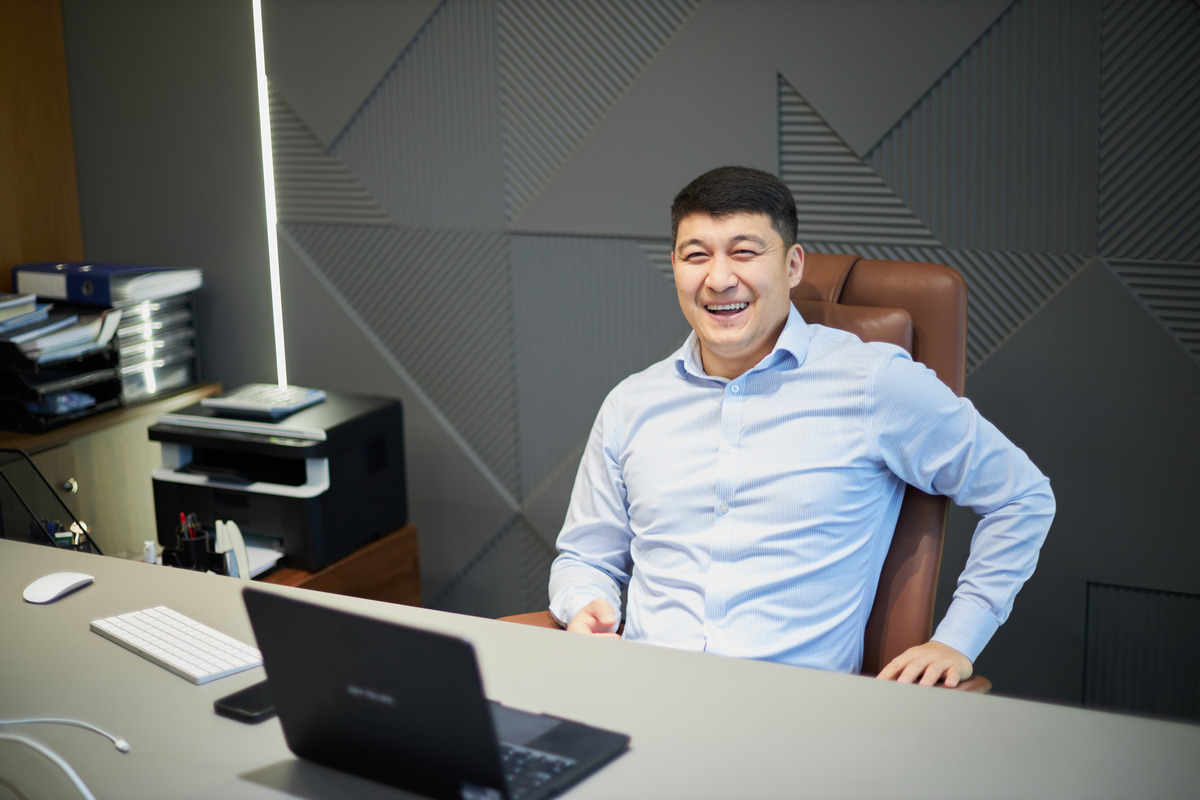
We dedicated three months to reaching out to them, but eventually, we concluded that the effort was not worthwhile. Instead, we opted to train our own experts, nurturing them into proficient auto selection advisors. We believed that by showcasing our work in the market, others would recognize our capabilities and choose to join us. This strategy proved successful.
The training course received mixed reviews. We had to refund money to some dissatisfied individuals who argued that all the information could be found on the Internet. While this is true, we consolidated and explained all the relevant information in one place. Looking at these information-savvy businessmen today, it's surprising to see how well they can thrive.
— Is it possible for anyone to undergo training and become a car selection advisor, or is prior experience working at a car repair shop necessary?
— While anyone can undergo training, it remains essential to accumulate experience inspecting hundreds or thousands of cars. Visual acuity is crucial for discerning small details that indicate potential issues with the car. For instance, noticing discrepancies such as the manufacturer date on the seat belts differing from the car manufacture date, observing unusual assembly of mirrors, or identifying unevenly placed stickers.
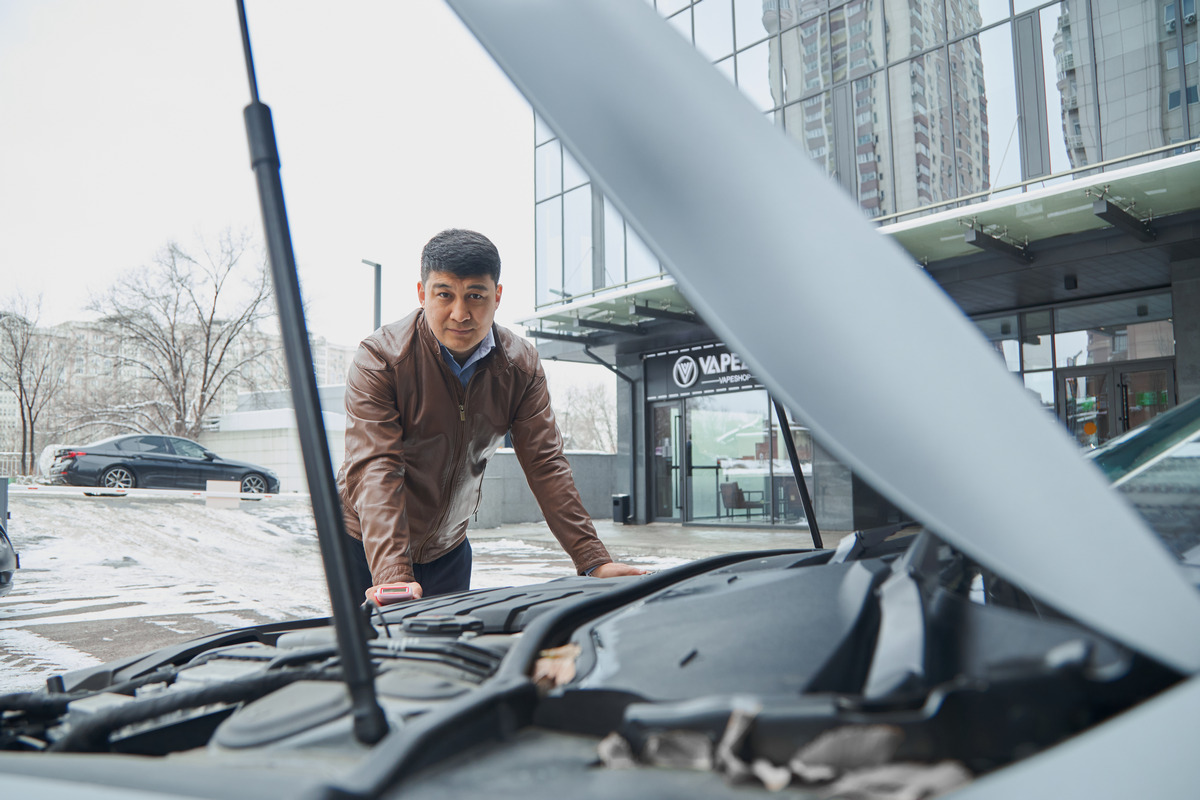
Problem cars and the Kazakhstani mentality
— How can CheckAuto assist me if I'm looking to purchase a car?
— Mainly, people use Instagram rather than our application to request car selections as it hasn't gained significant popularity yet. We are typically discovered through word of mouth, and individuals often approach us to either inspect a specific car or assist in selecting a car based on their specified budget.
Based on the client's request, we provide options. If details about the bottom and running gear are not crucial, and there's an urgent need for inspection, we dispatch the order to car selection advisors for a prompt assessment. Urgency is key, especially as car flippers actively seek good cars. Quick reactions are essential to avoid missing out, as not all of these cars make it to car repair shops.
If a client prioritizes a comprehensive car inspection, we schedule an appointment at a partner car repair shop where the inspection is conducted by their technicians..
— What guarantees does CheckAuto offer to its clients?
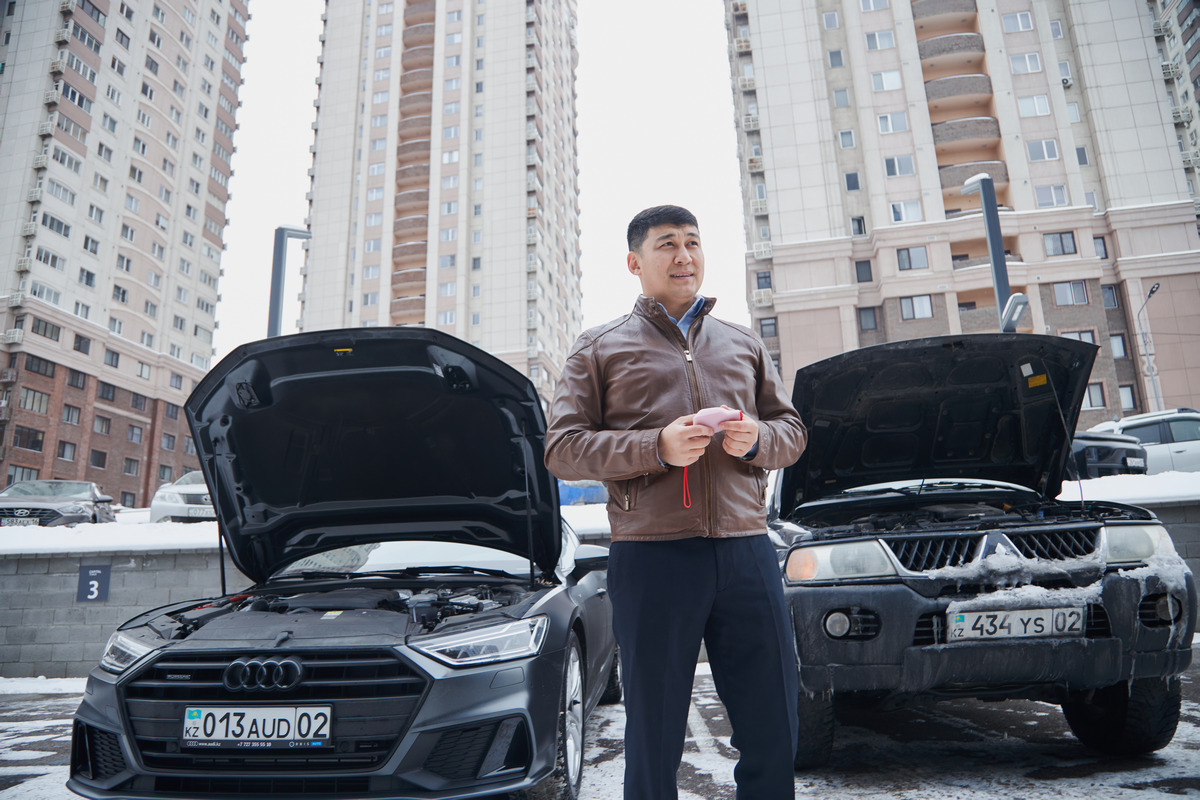
— Currently, as per the agreement, the full responsibility rests with the car selection advisor to whom we assign the order. However, we are not entirely satisfied with this arrangement. In the event of an error, we aspire to cover all the client's costs. As a result, we are in discussions with insurance companies to collaboratively devise a product that addresses this concern.
We are considering the concept of establishing inspection points at each Public Service Center where car formalities are processed. This would provide an opportunity to cross-verify the work of our partner auto experts. Various scenarios arise, such as the client and auto expert inspecting the same car, and the very next day, an identical car with re-stamped numbers appears at the Public Service Center. There are also cases where the seller alters the chassis, stereo system, or even car mats between the inspection and the car's legalization.
Moreover, we intend to offer our clients vouchers for a complimentary car inspection at a partner car repair shop within a month after the purchase. If these plans come to fruition, a single car will undergo three inspections.
— A more overarching question: What are the primary challenges in the Kazakhstan market?
— The primary challenge likely revolves around problematic cars entering Kazakhstan with forged documents. Numerous such vehicles have been imported from Russia, Georgia, and Korea in different periods. The issue is that engaging in illegal practices, including odometer tampering, has become normalized, as the prevailing belief is that “many do so.”
Another challenge lies in the recycling fee and initial registration. It's unclear who devised this system—perhaps with good intentions, but it has resulted in typical issues. To circumvent these rules and payments, individuals often resort to restamping the manufacturing year, rendering the car illegal in Kazakhstan.

Finally, there are no clear and standard procedures for dealing with problematic cars. If you identify that you have such a car, what should be the next steps? Should you dismantle it for parts and sell them? Offer it to the state at a reduced price for utilization, or return it to the previous owner? Presently, the state has only one procedure: seizing the car from you and placing it in the impoundment lot.
— What steps need to be taken to increase the availability of quality cars in the market?
— A change in mentality is crucial. Kazakhstani people need to adopt a more responsible approach to buying and selling. It's essential not to adhere to the practice of purchasing a problematic car, realizing the issues, and then selling it to another person. We take such behavioral patterns into consideration during the car selection process. For instance, if a car has had multiple registrations, it raises concerns, indicating potential problems.
In general, cars can have various issues, ranging from critical concerns like deployed safety bags and altered geometry due to accidents, to non-critical problems such as minor scratches from parking that may require bumper repainting. Our priority is to ensure that the buyer has a clear understanding of what car they are purchasing and why, preventing unnecessary overpayment for issues that may not align with their expectations.

Travel to Silicon Valley and economy
— Who are the main competitors of CheckAuto?
— Globally, the primary competitors are the US Carfax and Kelley Blue Book. However, they show no interest in the Kazakhstan market due to its relatively small size. Another contender is the Russian Avtoteka, but I also believe that they are unlikely to enter the Kazakhstan market.
Indirect competitors encompass Kolesa, Mycar, Aster Auto, and traditional car dealers.
All individual car selection advisors are not our competitors but potential partners who have not yet collaborated with us.
—What is the investment made in the startup, and what is the current revenue?
— We invested $150 thousand, which proved to be insufficient. Our monthly earnings are currently only two thousand dollars, covering the salaries of a few employees. Consequently, we had to make substantial staff reductions, reassess the business structure, and focus on maintaining existing services without unnecessary expenditures.
Currently, we are contemplating our next steps: whether to increase the budget, seek investments, or explore alternative options.
To seek the answers, I took part in the Hero Training program by Astana Hub and Draper University and traveled to Silicon Valley.
— Did you acquire the answers?
— Yes, we will test hypotheses and assess their effectiveness. For instance, while our initial focus was on B2C, we are now exploring entry into the B2B segment. We are currently in negotiations with Mycar and two banks regarding car inspections for them. The concept is that if an individual takes a loan to purchase a car and later discovers it was a regrettable decision, they may cease loan payments, reasoning that the loan is secured with the car, leaving the vehicle as collateral.
If we successfully secure agreements with major players for car inspections, there will be employment opportunities for our auto experts and a chance for the startup to thrive.

– Do you possess defined metrics for ensuring such survival?
– It is crucial to gather data on 10,000 to 20,000 cars throughout the Kazakhstan automotive market, ensuring they undergo inspection by auto experts and that our database promptly furnishes information about them.
In essence, our objective is to compile comprehensive data, obtaining information about every car in Kazakhstan. Subsequently, our application will naturally become appealing to ordinary car buyers. Presently, not all Kazakhstani individuals are inclined to pay 15,000 tenge for car selection services, but the prospect of accessing a car's history effortlessly through the application would be a valuable proposition.
We already recognize the significance of this value, as the technical condition of nearly half of the thousand cars we inspected differs from what was stated in the advertisements. In 35% of cases, we even identified legal issues—such as the car being encumbered, used as collateral, or imported to the country through shadow schemes. Instances of restamped numbers and the presence of a duplicate operating in Russia were also discovered. These represent substantial risks for potential buyers.
Allow me to illustrate with an example: a Kazakhstani individual placed trust in a car dealer and acquired a 2020 KIA for 15 million tenge through a loan. However, the car began experiencing frequent breakdowns, raising suspicions. Upon inspection, it was revealed that the car was actually two years older, and its actual mileage was 265 thousand kilometers, as opposed to the 50 thousand indicated at the time of purchase. A pre-purchase inspection would have prevented the acquisition of this problematic car.
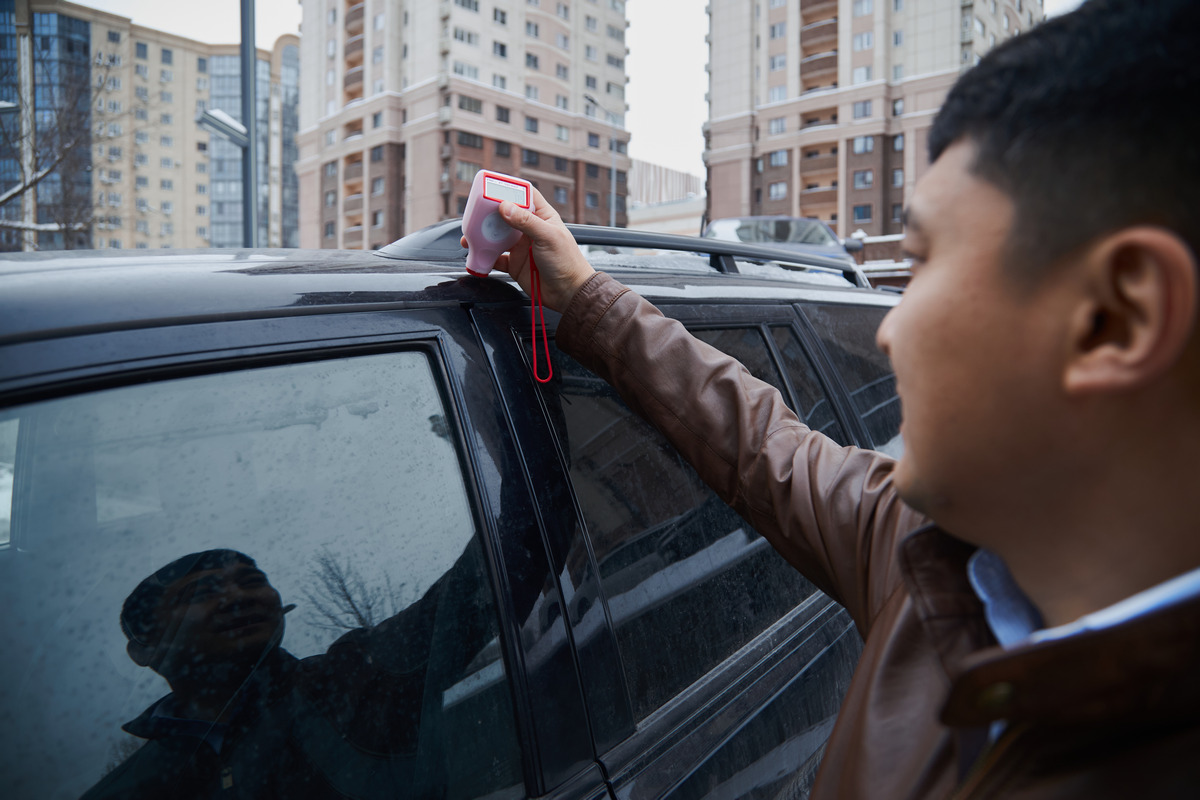
— What are your thoughts on attracting investments for the startup?
— This was one of the objectives of the trip to Silicon Valley. However, U.S. investors recommended narrowing our focus to a very specific niche. For instance, the concept of offering services for selecting retro cars resonated well with them. We need to carefully consider this insight.
At the Digital Bridge forum, we had meetings and discussions with MyVentures and other investors. However, we did not receive concrete offers.
— Are there any plans to expand beyond the borders of Kazakhstan?
— Yes, but we haven't singled out any specific countries. We are open to exploring all markets. For instance, car selection advisors based in Dubai could potentially inspect cars for buyers from Kazakhstan. In our discussions with OLX, we discovered they have a branch involved in buying cars from Europe and reselling them to emerging countries. Collaborating with them would be a fantastic opportunity.
Initially, our focus is on establishing a strong presence in Kazakhstan. Subsequently, we will contemplate expansion into other countries.
— What is your vision for the future of CheckAuto?
— In Kazakhstan, our plan is to capture a share of the market from Kolesa and secure it within five years. We aim for 10-20%, which should be sufficient to value CheckAuto at $20 million.
I don't want to set global plans, but our goal is to aspire to become one of the leaders in the automotive sector. This entails staying updated on trends and implementing new services. Just as with AI today, the integration of artificial intelligence will soon become a necessity for any startup. It's crucial to bear this in mind and be prepared to transform promptly.



